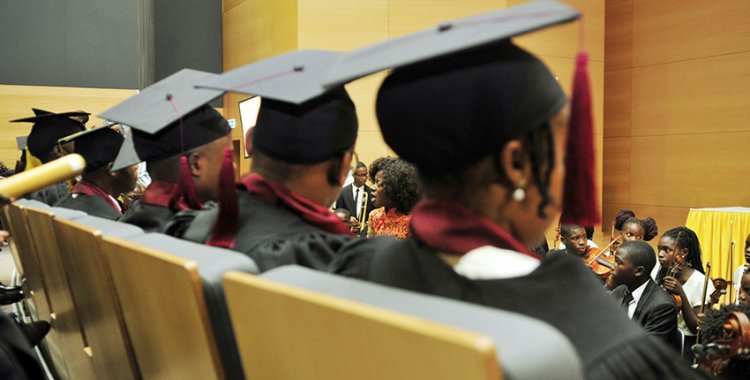According to the vice-president, Esperança da Costa, “the efforts of the Angolan executive are remarkable and the progress that the country has made in terms of expansion and access to higher education in the last two decades is undeniable”.
“But, we need to convert this expansion into the training of more qualified professionals capable of meeting the demands of current times and upcoming challenges”, said Esperança da Costa at the solemn opening ceremony of the 2023/2024 academic year.
The vice-president of the Republic, who gave the opening speech at the ceremony, in Luanda, reaffirmed the executive's commitment to improving the quality of education, particularly in the higher education subsystem, placing it "at the service of inclusion, innovation and of sustainable development”.
For the governor, the mission of the country's authorities must focus on the need to pave the way for the future, where knowledge is in fact the transformative force necessary to face contemporary challenges that require solutions.
She announced that around 360,000 students distributed across public and private higher education institutions with a training offer of 1356 courses are enrolled in higher education for the academic year that begins.
Esperança da Costa listed, in its intervention, the actions that the Government must develop in the five-year period 2023-2024, with resources from the General State Budget and financial support from partners such as the European Union, World Bank and African Development Bank.
“We intend to increase investment in human capital, increase and improve infrastructure, increase access to higher education, improve the training offer and value gender equity”, she highlighted.
According to Esperança da Costa, in this five-year period, the authorities also intend to invest in Higher Institutes of Education Sciences and higher schools.
Promoting digital transformation in institutions, consolidating the higher education quality assurance system and strengthening its management are also among the actions that the executive intends to materialize between 2023 and 2027.
“If, on the one hand, it is necessary to improve the training offer and access to higher education, on the other, it is critical to promote the strengthening of skills, the qualitative differentiation of teaching staff, researchers and non-teaching staff”, she noted.
For the country's reality, she argued, improving the training offer “must focus above all on the creation of new courses on science, technology, engineering and mathematics”.
He also highlighted ongoing actions aimed at improving infrastructure and financing postgraduate courses, noting that the UNI.AO program (European Union Higher Education Support Programme) financed the creation of 13 new postgraduate courses in Angola worth 1.2 million euros.
With the support of UNI.AO, said the vice-president, 10 private higher education institutions from six provinces were selected.
In this solemn opening ceremony of the 2023-2024 academic year, classes starting next Monday, October 2nd, the institutions identified in the UNI.AO program notice signed the respective terms of commitment for the approved courses.
Esperança da Costa also announced that the development of a plan for the equality and inclusion of women in higher education is underway.







